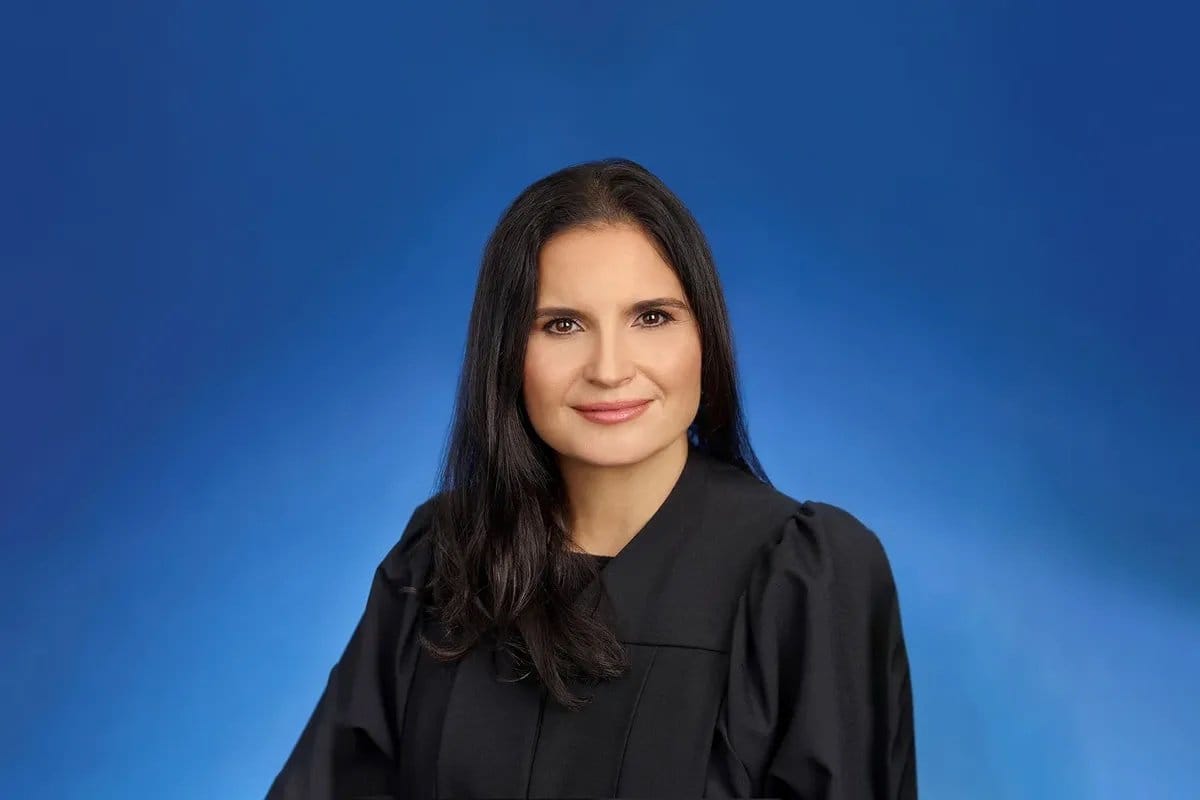This article delves into the life and career of Judge Aileen Cannon, exploring her background, rapid rise to the federal bench, and the controversies that have surrounded her handling of cases related to former President Donald Trump.
From Miami to the Federal Bench: Aileen Cannon’s Journey
Aileen Cannon’s story begins in Cali, Colombia, but her formative years were spent in Miami, Florida. This upbringing, particularly her mother’s experience fleeing Cuba after the revolution, likely exposed her to the perspectives and values often associated with conservative Cuban-American circles.
After graduating from Duke University, Cannon attended the University of Michigan Law School, where she excelled academically, graduating magna cum laude and as a member of the Order of the Coif. Following law school, she clerked for Judge Steven Colloton on the U.S. Court of Appeals for the Eighth Circuit. She then practiced corporate law at Gibson Dunn before embarking on a seven-year career as a federal prosecutor in the Southern District of Florida.
In 2020, at the age of 39, Cannon was nominated to the federal bench by President Trump. Her nomination, confirmed by the Senate, marked a remarkably rapid ascent through the legal ranks. This swift elevation, while not unprecedented, drew attention, particularly given her relatively limited experience compared to other federal judges.
A Judge Under Scrutiny: The Trump Connection
Cannon’s handling of cases linked to former President Trump thrust her into the center of a national debate about judicial independence and the politicization of the courts.
The Mar-a-Lago Documents Case
In 2022, Cannon made a controversial decision in the case involving the FBI’s seizure of documents from Trump’s Mar-a-Lago residence. She granted Trump’s request for a special master to review the seized materials, a move widely seen as favorable to Trump and highly unusual in a case involving executive privilege. Legal experts questioned the basis for her ruling, and the Eleventh Circuit Court of Appeals ultimately overturned her decision, finding that she had improperly asserted jurisdiction in the case.
Dismissal of the Federal Criminal Case
Cannon’s involvement in Trump-related cases continued to generate controversy. In July 2024, she dismissed the federal criminal case against Trump, citing the unconstitutionality of Special Counsel Jack Smith’s appointment. This ruling, which defied the legal consensus surrounding the special counsel’s authority, intensified calls for her recusal and fueled accusations of partisan bias.
Calls for Recusal and Questions of Bias
Throughout her handling of Trump-related cases, numerous legal experts and ethics watchdogs have called for Cannon’s recusal. These calls stem from concerns that her previous rulings, particularly in the Mar-a-Lago documents case, suggest a potential bias in favor of Trump. Cannon’s defenders maintain that she is a fair and impartial judge who bases her decisions solely on the law. However, the unprecedented nature of her rulings in the Trump cases has undoubtedly shaken public confidence in her ability to be objective.
Limited Experience, Major Implications: Examining Cannon’s Trial Record
A key point of contention surrounding Judge Cannon is her limited experience on the bench, particularly in the realm of criminal trials. Before presiding over the high-profile Trump documents case, Cannon had overseen only four criminal trials as a federal judge. This limited experience is particularly notable given the complexity and gravity of the Trump case, which involves intricate legal questions, classified information, and significant national security implications.
Critics argue that Cannon’s lack of experience raises serious concerns about her ability to effectively manage a case of this magnitude. They point to her handling of the initial Trump documents lawsuit, where her rulings were repeatedly overturned by higher courts, as evidence that she may not be equipped to navigate the legal complexities of the current case.
Cannon’s supporters counter that her experience as a federal prosecutor, even if it didn’t involve extensive trial work, provides valuable insight into criminal law and procedure. They also point to her rulings in civil cases as evidence of her legal acumen and capabilities.
However, the fact remains that presiding over a federal criminal trial, especially one as politically charged and legally complex as the Trump documents case, demands a level of experience and judgment that even Cannon’s most ardent supporters acknowledge she has yet to fully develop.
A Sign of the Times? Judicial Appointments and the Politicization of the Courts
The controversies surrounding Aileen Cannon are not isolated incidents. They reflect a broader trend of increasing politicization within the judiciary, particularly at the federal level.
Cannon’s appointment by President Trump, along with the appointment of numerous other conservative judges during his presidency, has raised concerns about the politicization of the judicial nomination process. Critics argue that these appointments are driven more by ideology than by qualifications and experience, potentially undermining the integrity and independence of the courts.
The debate surrounding Judge Cannon highlights the critical importance of a fair and impartial judiciary. When public confidence in the courts erodes, so too does trust in the rule of law.
A Career in the Balance
Aileen Cannon’s judicial career is still in its early stages, but her handling of cases related to former President Trump has already left an indelible mark. Her decisions have sparked intense debate about judicial overreach, potential bias, and the role of ideology in judicial decision-making. Only time will tell how these controversies will shape her legacy and whether she can regain the public trust that is essential for any judge.
Recommended Titles:
- Beyond the Headlines: A Deep Dive into Judge Aileen Cannon’s Trial Record
- Aileen Cannon’s Short But Controversial Time on the Bench: How Many Cases Has She Really Tried?
- From Routine to Historic: Analyzing Judge Aileen Cannon’s Path to the Trump Documents Case
Powerful Key Lines:
- Judge Aileen Cannon, thrust into the spotlight by the Trump documents case, has presided over a surprisingly small number of criminal trials – just four – raising questions about her readiness for such a high-profile and complex legal battle.
- While Judge Cannon’s supporters point to her rulings in civil cases as evidence of her capabilities, critics argue that her lack of extensive criminal trial experience, particularly in handling classified information, raises concerns about her ability to navigate the unprecedented legal terrain of the Trump prosecution.
- Despite presiding over a limited number of criminal trials, Judge Cannon’s rulings in those cases, particularly her handling of the original Trump documents lawsuit, have drawn significant scrutiny and sparked debate about her judicial temperament and potential biases.
- The debate surrounding Judge Cannon’s readiness for the Trump documents case extends beyond simple numbers. Her decisions, often favoring the former president, have fueled accusations of bias and raised questions about whether her judicial philosophy aligns with established legal precedents.
Uncover More Untold Stories:
Dive into the extraordinary lives of other fascinating figures:
- Uncover the mind-blowing facts about one of the most influential philosophers of the 20th century, Jean Paul Sartre.
- Dive into the extraordinary life of legendary jazz musician Louis Armstrong.
- Explore the fascinating world of Fedor Emelianenko, the legendary mixed martial artist who holds an undefeated streak in combat sambo.















